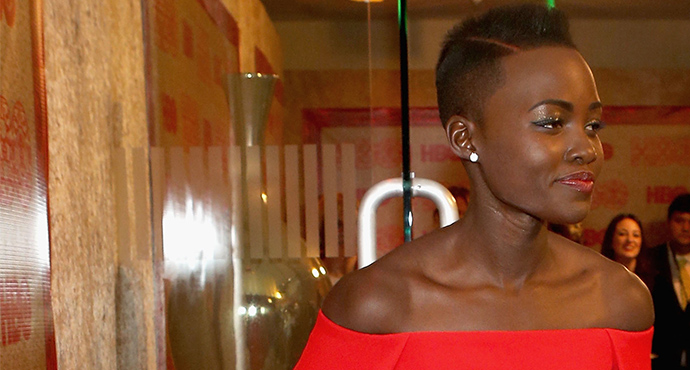Lupita Nyong’o is gorgeous. People magazine got that right when handing her the 2014 “World’s Most Beautiful” title. However, her greatest allure isn’t her aesthetic, it’s her signature mix of confidence, humility and wisdom. She understands that the positive attention she garners for her looks, ultimately, isn’t about her at all.
Rather it’s about all of the little brown girls who will see their beauty affirmed along with hers. Tellingly, when asked how she felt about being named “World’s Most Beautiful,” Nyong’o spoke of them, not herself. “I was happy for all the girls who would see me on the cover and feel a little more seen,” she said.
She remembers what it was like to be a young girl rendered invisible by media that neither celebrated nor acknowledged her hair, her skin, her shape. “Beauty was what I saw on television, you know, light skin and long, flowing, straight hair,” she said in the People article. “Subconsciously you start to appreciate those things more than what you possess.”
Two women in particular helped her embrace her singular beauty–her mother Dorothy and pioneering supermodel Alek Wek. Before Nyong’o could see her own beauty, her mother insisted it was there and taught her to respect it with a healthy diet and conscious care. And Wek advanced the cause from afar when she modeled a new standard of gloriously dark beauty on runways and in magazines worldwide.
“The wonderful thing about being in some sort of public eye is that you can affect and inspire others,” Nyong’o told Wek during a chat recorded by People TV. She also called meeting the model a “dream come true” because it gave the pair a chance to discuss “beauty and character.” Rare is the celebrity beauty who consistently uses her platform to turn discussion from appearance to integrity.
Nyong’o grasps the power of her newfound position as a beauty standard-bearer and is knowingly subversive in her comments. The new Lancôme brand ambassador declares: “The compliments I remember the most and that I cherish are when I have been called beautiful with not one drop of makeup on.” Literally adjacent to a beauty product ad, she’s quoted saying: “I feel most beautiful when I am content. Happiness is the most important thing.”
Smart and grounded, Nyong’o understands that beauty standards propagated by media and corporations are unattainable, and that what we should be pursuing–fulfillment and comfort in our own skins–can’t be bought. She also senses the injustice of a world in which being called beautiful is all too often synonymous with being deemed acceptable, good and worthy. She’s using her moment as Hollywood’s It Girl to affirm young women and to tout an alternative, healthier set of values.
The stakes are high. I’m reminded of an insight from Ben Arogundade that’s quoted in Deborah Willis’s “Posing Beauty.”
in literary terms, black beauty remains a cause without a portfolio…Who can really talk of the folly of beauty when there are still so many other battles to be won? But beauty is also a battle. And the right to be beautiful and to be acknowledged as such whoever you are, wherever you are from is not so much a folly as a human-rights issue. In writing the history of the black experience did we forget something important? Did we forget about beauty?
Today Nyong’o’s a warrior in this battle. As she smiles and poses her way into the mainstream, she challenges us all to heed her words even as we gratefully consume her images. She calls us to think more deeply about what beauty is, who it includes, why it matters and whether it should. She urges self-awareness, strength of character and rejection of skin-deep ideals. That’s beautiful.


